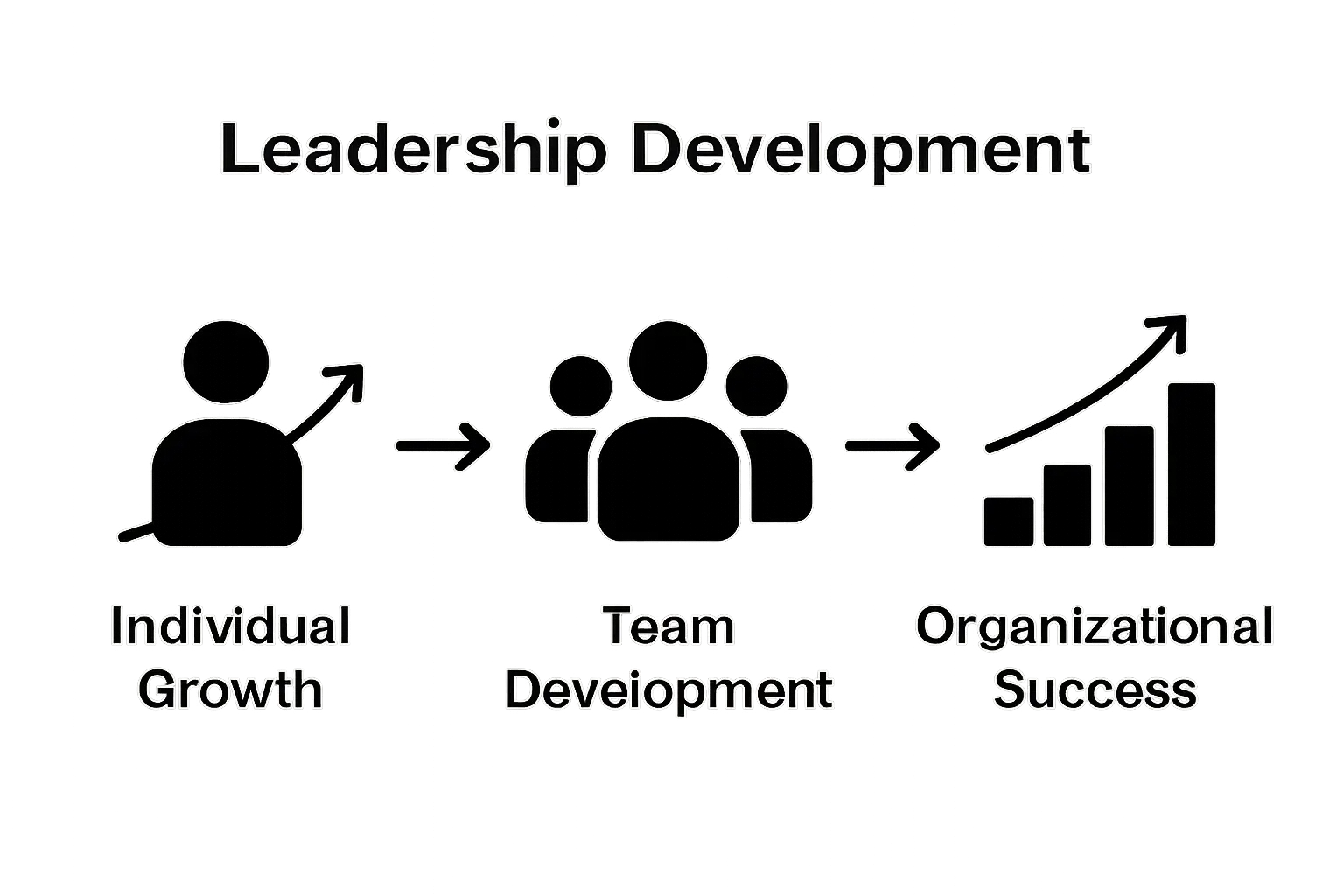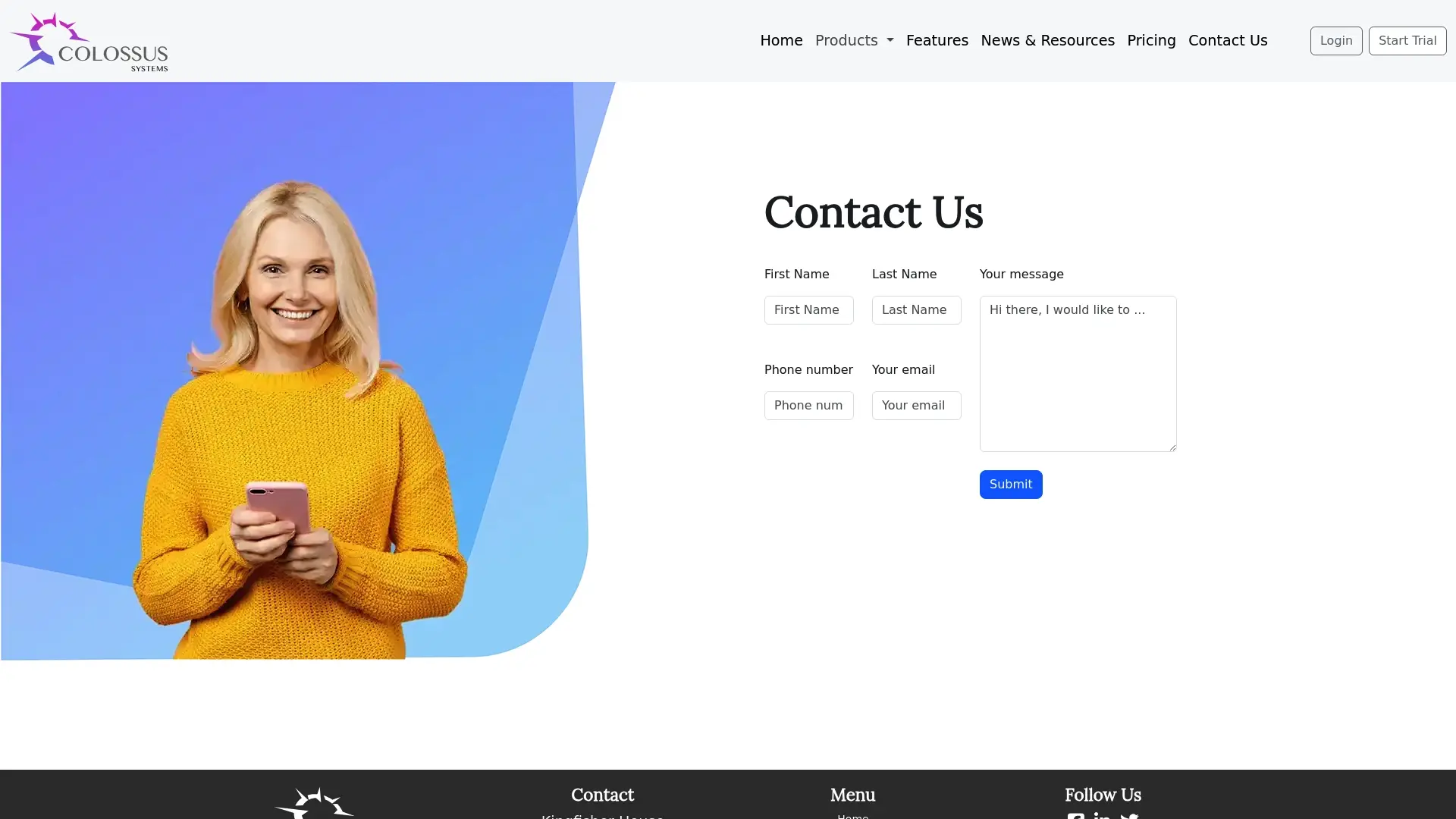Understanding Leadership Development Programs in Detail

Leadership development programs promise more than just shiny credentials. Nearly 75 percent of organisations that invest in these initiatives see marked improvement in performance and employee retention. Surprising as it sounds, most leaders are not born but shaped by the very structure and experiences these programs deliver.
Table of Contents
- What Are Leadership Development Programs?
- Why Leadership Development Matters For Organisations
- Core Principles Behind Effective Leadership Development
- How Leadership Development Programs Are Structured
- Real-World Impact Of Leadership Development Programs
Quick Summary
| Takeaway | Explanation |
|---|---|
| Focus on Developing Leadership Skills | Invest in systematic training to cultivate leadership capabilities at all levels. |
| Create a Talent Pipeline | Establish robust leadership development to sustain organisational growth and adaptability. |
| Employ Diverse Learning Methods | Combine theoretical training, practical experiences, and mentorship for effective leadership training. |
| Link Development to Strategy | Align leadership programs with organisational objectives to address specific challenges. |
| Measure Outcomes and Impact | Use assessments to track progress and ensure continuous improvement in leadership capabilities. |
What are Leadership Development Programs?
Leadership development programs are structured, systematic training initiatives designed to cultivate and enhance leadership capabilities within individuals across various professional levels. These comprehensive programs focus on transforming potential into tangible leadership skills by providing targeted learning experiences, mentorship opportunities, and practical skill-building activities.
Core Purpose and Strategic Objectives
The fundamental goal of leadership development programs is to prepare individuals to effectively guide teams, make strategic decisions, and drive organisational success. These programs aim to address critical leadership competencies such as emotional intelligence, strategic thinking, communication, change management, and interpersonal skills.
Key objectives typically include:
- Identifying and nurturing high-potential talent within organisations
- Creating a robust leadership pipeline for future organisational needs
- Developing adaptive leadership approaches that respond to complex business environments
- Enhancing individual and collective leadership capabilities
Multifaceted Learning Approaches
Leadership development programs employ diverse learning methodologies to ensure comprehensive skill development. According to the Library of Congress Leadership Development Program, these approaches often incorporate multiple learning strategies:
- Theoretical Training: Structured workshops and seminars exploring leadership theories and contemporary management concepts
- Practical Experiences: Hands-on projects, case studies, and real-world scenario analyses
- Mentorship: Personalised guidance from experienced leaders who provide insights and professional development support
- Behavioural Assessments: Diagnostic tools that help participants understand their leadership strengths and potential areas for improvement
By integrating these comprehensive learning experiences, leadership development programs create a holistic environment that transforms promising professionals into exceptional leaders capable of navigating complex organisational challenges.
Why Leadership Development Matters for Organisations
Leadership development is not merely a professional enhancement strategy but a critical investment that directly impacts an organisation’s long-term sustainability, performance, and competitive advantage. By systematically nurturing leadership talent, organisations create robust ecosystems that can effectively navigate complex business challenges and drive strategic growth.
Strategic Competitive Advantage
In today’s rapidly evolving business landscape, organisations with strong leadership capabilities are better positioned to adapt, innovate, and respond to dynamic market conditions. Effective leadership development programs create a talent pipeline that ensures organisational resilience and continuity.
Key strategic benefits include:
- Improved organisational agility and responsiveness
- Enhanced problem-solving capabilities at multiple levels
- Consistent alignment of individual performance with organisational goals
- Reduced leadership succession risks
Economic and Performance Impact
Research demonstrates a profound correlation between leadership development and organisational performance.
According to the U.S. Office of Personnel Management, organisations investing in comprehensive leadership training experience significant improvements in operational efficiency, employee engagement, and overall productivity.
Financial Performance Indicators:
- Higher employee retention rates
- Increased operational efficiency
- More effective strategic decision making
- Improved organisational culture and employee morale
Talent Retention and Organisational Culture
Leadership development programs serve as powerful mechanisms for talent attraction and retention. By demonstrating a commitment to professional growth, organisations create environments that attract high-potential professionals and foster a culture of continuous learning.
Moreover, these programs help develop emotionally intelligent leaders who can create inclusive, motivating work environments. This approach not only enhances individual performance but also contributes to building a positive organisational culture that supports sustainable growth. Learn more about staff training best practices to understand how comprehensive development strategies can transform your organisation’s potential.
Core Principles Behind Effective Leadership Development
Effective leadership development transcends traditional training approaches, requiring a sophisticated, multifaceted strategy that addresses the complex nature of professional growth and organisational leadership. These programs are built upon foundational principles that ensure meaningful, sustainable leadership transformation.
Holistic and Integrated Learning Approach
Successful leadership development programs recognise that leadership is not a singular skill but a complex interplay of cognitive, emotional, and behavioural capabilities. This holistic approach integrates multiple learning dimensions to create comprehensive developmental experiences.
Key integrated learning components include:
- Theoretical knowledge acquisition
- Practical skill application
- Personal reflection and self-awareness
- Contextual understanding of organisational dynamics
Continuous Feedback and Developmental Mindset
According to research published in the Journal of Healthcare Leadership, effective leadership development hinges on creating a continuous learning environment that emphasises ongoing feedback, reflection, and adaptive growth. This principle recognises that leadership development is not a destination but a perpetual journey of improvement.
Critical elements of this approach involve:

- Regular performance assessments
- Structured mentorship programs
- Personal development planning
- Opportunities for real-world challenge and experimentation
Alignment with Organisational Strategy
Leadership development must be intrinsically linked to the broader strategic objectives of the organisation. Programmes should not exist in isolation but serve as dynamic mechanisms for cultivating leadership capabilities that directly contribute to organisational success.
This strategic alignment ensures that leadership development:
- Addresses specific organisational challenges
- Develops leaders who understand broader business contexts
- Creates a leadership pipeline matching future organisational needs
By embracing these core principles, organisations can create transformative leadership development programs that genuinely enhance individual potential and organisational capability. Explore public speaking strategies for emerging leaders to understand how specific skills contribute to comprehensive leadership development.
How Leadership Development Programs are Structured
Leadership development programs represent sophisticated, intentionally designed learning ecosystems that combine multiple learning modalities, assessment techniques, and developmental strategies. These structured approaches ensure comprehensive skill enhancement and transformative professional growth across different organisational levels.
Comprehensive Learning Architecture
The architecture of leadership development programs typically encompasses a multidimensional framework that integrates theoretical knowledge, practical experiences, and personalised developmental pathways. This strategic design ensures participants receive a holistic approach to leadership skill acquisition.
Key structural components include:
- Modular curriculum design
- Customised learning tracks
- Progressive skill complexity
- Integrated assessment mechanisms
Learning Modality Diversity
According to the Library of Congress Leadership Development Program, effective programs leverage diverse learning modalities to create rich, engaging developmental experiences. These modalities are carefully selected to address different learning preferences and organisational requirements.
Primary learning approaches encompass:
The following table summarises the primary learning modalities leveraged within leadership development programmes, highlighting the distinctive features and strengths of each approach mentioned in the article.
| Learning Modality | Description | Key Strengths |
|---|---|---|
| Classroom Training | Structured workshops and seminars | In-depth theoretical knowledge, peer learning |
| Online Learning | Self-paced digital modules and interactive courses | Flexibility, scalable access |
| Experiential Learning | Practical assignments and real-world projects | Application of knowledge, real-world impact |
| Mentorship Programmes | One-on-one guidance from experienced leaders | Personalised feedback, career development |
- Classroom Training: Structured workshops and seminars
- Online Learning: Self-paced digital modules and interactive courses
- Experiential Learning: Practical assignments and real-world projects
- Mentorship Programs: One-on-one guidance from experienced leaders
Assessment and Progression Frameworks
Leadership development programs implement robust assessment frameworks that track individual progress, identify developmental opportunities, and ensure continuous improvement. These frameworks provide transparent mechanisms for measuring leadership potential and skill advancement.
Key assessment strategies involve:
- Competency mapping
- 360-degree feedback mechanisms
- Performance benchmarking
- Individual development planning
By integrating these comprehensive structural elements, leadership development programs create dynamic learning environments that transform potential into exceptional leadership capabilities. Explore virtual training best practices to understand how modern learning technologies enhance developmental experiences.
Real-World Impact of Leadership Development Programs
Leadership development programs extend far beyond theoretical training, delivering tangible, measurable outcomes that transform organisational performance and individual professional trajectories. These initiatives create cascading positive effects that ripple through entire organisational ecosystems, generating substantial strategic advantages.
Organisational Performance Transformation
Comprehensive leadership development programs directly influence organisational effectiveness by cultivating adaptive, strategic leadership capabilities. These initiatives enable organisations to build resilient leadership pipelines that can navigate complex business environments and drive sustainable growth.
Key performance impact areas include:
- Enhanced strategic decision making
- Improved operational efficiency
- Increased employee engagement and retention
- More agile organisational response mechanisms
Individual Professional Growth
According to research published in Frontiers in Psychology, leadership development programs produce significant individual transformation. Participants experience comprehensive skill enhancement that extends beyond traditional professional development approaches.
Measurable individual outcomes comprise:

- Advanced emotional intelligence
- Stronger communication capabilities
- Increased self-awareness
- Greater cross-functional collaboration skills
Quantifiable Organisational Benefits
Leadership development programs generate substantial economic and strategic advantages that translate directly into organisational performance metrics. These programs are not merely expense items but strategic investments with demonstrable returns.
Critical quantifiable benefits include:
This table provides an overview of the principal quantifiable benefits that leadership development programmes deliver at an organisational level, consolidating the outcomes described in the article.
| Organisational Benefit | Explanation |
|---|---|
| Reduced Succession Risks | Ensures a steady pipeline of capable leaders |
| Lower Recruitment Costs | Nurtures talent internally, reducing hiring spend |
| Higher Innovation Potential | Fosters creative problem-solving and growth |
| Improved Talent Retention Rates | Supports engagement and lowers employee turnover |
- Reduced leadership succession risks
- Lower recruitment and talent acquisition costs
- Higher innovation potential
- Improved talent retention rates
By systematically investing in leadership development, organisations create powerful mechanisms for continuous improvement and strategic adaptation. Explore online training benefits to understand how modern learning technologies amplify developmental outcomes and organisational performance.
Unlock Your Organisation’s Leadership Potential with Smarter Digital Tools
Are you facing the challenge of building robust leadership skills and a seamless development pipeline across your membership organisation? The article has highlighted how essential it is to align leadership training with real operational needs, yet many associations struggle to keep members engaged and transform potential into action. Pain points such as disconnected training experiences, limited member involvement, and inefficient event management hold back your future leaders. Imagine a solution where your leadership initiatives, events, and ongoing member engagement work in harmony through one powerful platform.

Do not let scattered processes and manual management stall your organisation’s growth. With Colossus Systems, you can streamline leadership development, automate event planning, and nurture talent with integrated virtual training and analytics. Connect your leadership programmes to continuous member engagement and see measurable results faster. Ready to transform your leadership pipeline? Contact us today and discover how your organisation can deliver stronger leadership outcomes now. For more insights into elevating member experience through comprehensive development, explore staff training best practices and virtual training best practices. Empower your next generation of leaders with the digital advantage.
Frequently Asked Questions
What is the purpose of leadership development programs?
Leadership development programs aim to cultivate and enhance leadership skills in individuals at various professional levels, preparing them to effectively guide teams and drive organisational success through comprehensive training and mentorship.
What key competencies do leadership development programs focus on?
These programs typically focus on critical leadership competencies such as emotional intelligence, strategic thinking, communication, change management, and interpersonal skills to prepare individuals for effective leadership roles.
How are leadership development programs structured?
Leadership development programs are structured through a multidimensional framework that integrates theoretical knowledge, practical experiences, and personalised developmental pathways, often employing diverse learning modalities such as workshops, online courses, mentorship, and experiential learning.
What are the benefits of investing in leadership development?
Investing in leadership development can lead to improved organisational performance, enhanced employee engagement, higher retention rates, and a stronger leadership pipeline, ultimately providing a significant competitive advantage to organisations.